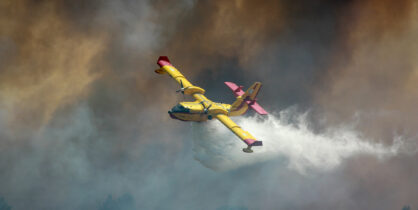Who Lets Greek Forests Burn?
Greece needs policy and preparation to prevent massive wildfires
Every summer, a familiar story plays out in my home country of Greece. It is one of worsening wildfires, a lack of lessons learned, and a sense of exasperation. In August 2024, a large wildfire fanned by strong winds encroached on the capital, Athens, billowing smoke above the city and prompting the evacuation of at least 11 towns and villages, and three hospitals.
In the summer of 2023, a deadly blaze that took hold in Alexandroupoli, capital of Evros region, became the largest wildfire ever recorded in the EU. The fire, which burned for 17 consecutive days, mostly within Dadia National Park and the extended Natura 2000 network, killed 20 migrants who were caught out in the countryside and reduced over 120,000 olive trees to ash.
While the number of fires has decreased from 2023 according to the EU’s satellite observation program, heatwaves have pushed temperatures above 40oC and in the span of just one day between 25-26 June 2024, a total of 55 fires were detected, of which 46 were immediately extinguished.
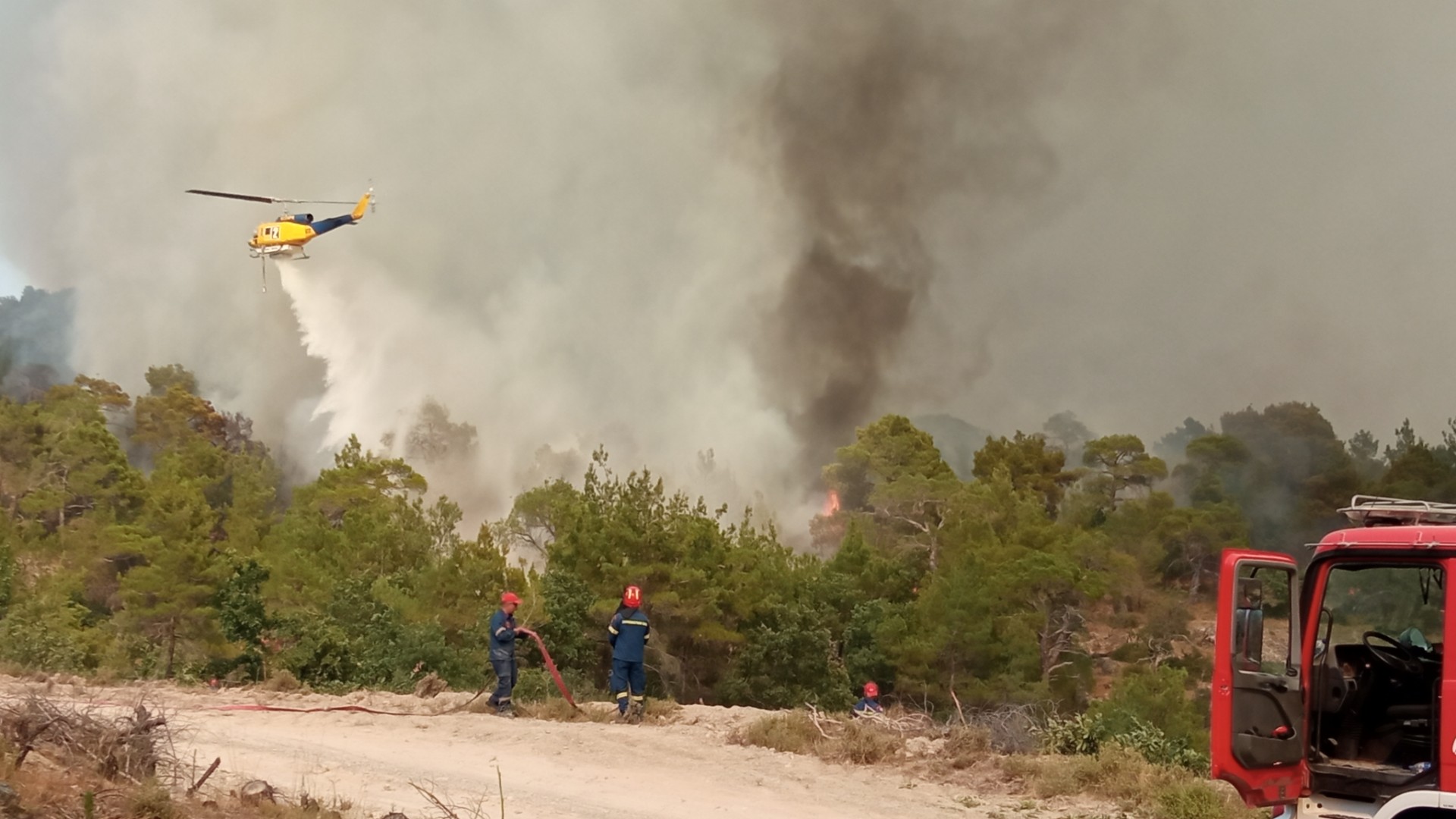
Finding the Causes
In Greece, where polarization is common, it can be difficult to create an honest dialogue around an issue. However, when it comes to wildfires, the main divide can be found between Greek society on one side and Greek officials on the other – many members of the public believe the fires are caused by arsonists on purpose while the government often lays the blame on climate change.
Data on the causes of wildfires in Greece is scant, but going back to information from 2018, it was estimated that 8 in every 10 wildfires were started by a naked flame such as lighters or matches, according to Greek investigative outlet Solomon. Specifically, 50% of forest fires and 45% of agricultural fires were started intentionally. Natural causes were attributed to 12% and less than 1% of those, respectively.
Elias Tziritis, the forest fires action coordinator at WWF Greece, tells REVOLVE in an interview that in the last 20 years, “95% of fires in our country are caused by people, whether it is negligent or deliberate, and 5% by natural causes – for instance, lightning. The problem is that the data is not publicly available and there is no in-depth analysis of the causes.”
Indeed, the Fire Service of Greece has open data only for the causes of urban fires, but not for forest fires. In 2023, the official cause of 82% of urban fires was attributed as unknown, with only 3% registered as arson with intent. According to the WWF expert, “of the 10,000s of fires started very few are analyzed and studied – a few hundred incidents.”
Why does a fire spread uncontrollably?
To further investigate the reasons for the uncontrolled expansion of fires, we can take the megafire in Evros as an example.
Ethnobotanist Pavlos Georgiadis noted in a September 2023 blogpost entitled Learning from Europe’s Largest Wildfire on Record that there were multiple factors that led this wildfire to become the largest ever recorded in the EU. Georgiadis pointed out that strong winds, dry conditions, and flammable materials on the forest floor enabled the rapid spread of the megafire and highlighted gaps in the fire prevention strategy.
“The Greek state had not hired a single forester since years. The Forestry Office of Soufli, responsible for managing the precious Dadia Forest National Park, has no foresters, but only four forest technicians with an average age of 60,” he wrote.
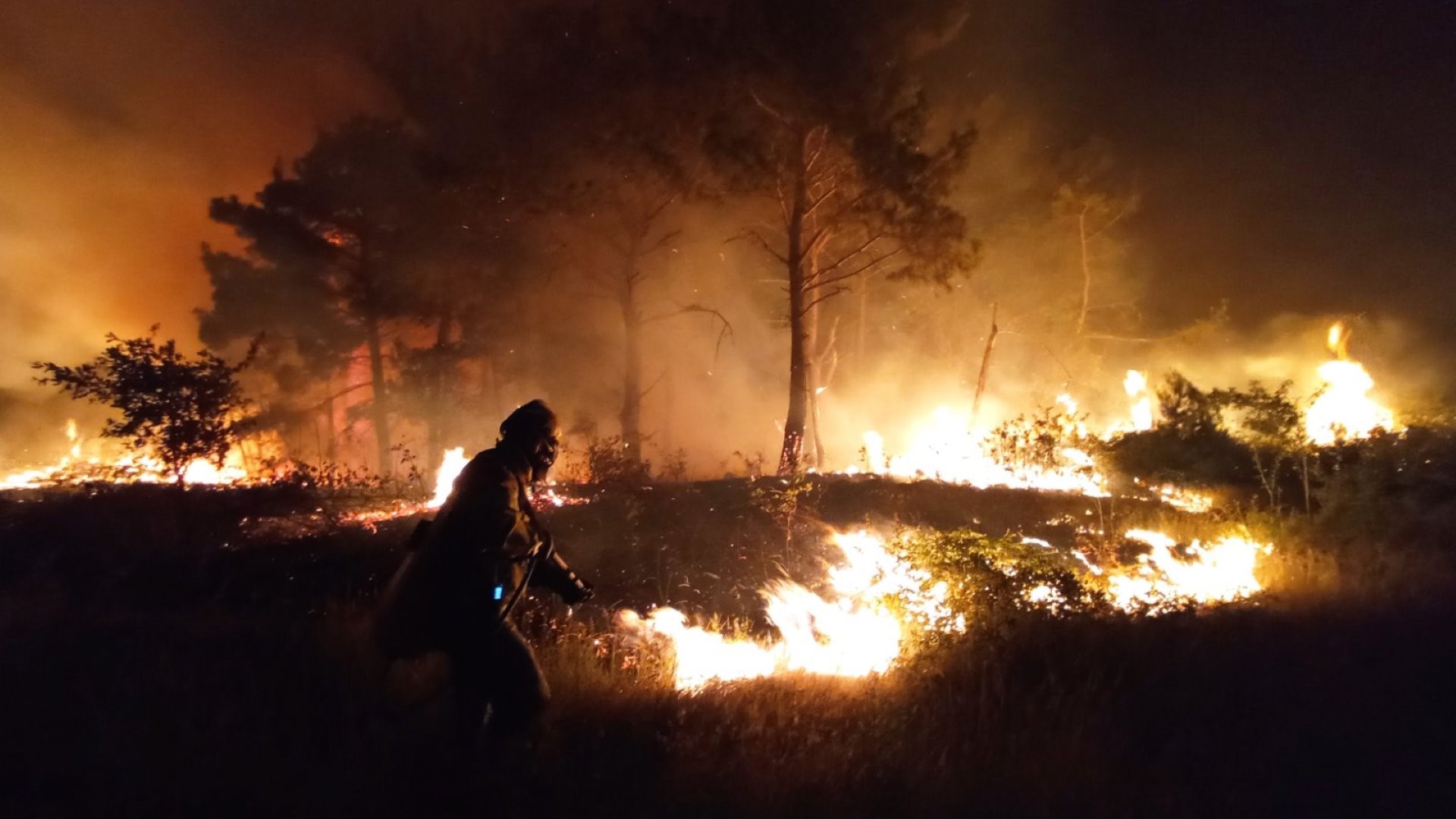
Greek firefighters are often underpaid and work seasonally. A young volunteer firefighter, Vangelis Isaris, told REVOLVE in an August 2024 interview that: “It’s certainly a small salary compared to what they do. For example, a firefighter that was called to fight a fire in Nafpaktos that started at 12:00 and finished at 17:00, may then be called to leave Nafpaktos and go to a different fire in Athens [about 2.5 hours away by car]. Clearly, there’s no specific hours, and as you can understand, these people get tired.”
The lack of prevention planning is apparent. The “Iolaus 2” plan, which is the General Plan of the General Secretariat for Civil Protection for dealing with emergencies caused by forest fires, only provides measures after a fire has broken out. It therefore neglects prevention actions that can be applied at the local level. Additionally, it lacks analyses of both threats and causes of wildfires, as well as scenarios that can lead to a fire breaking out.
The Iolaus 2 plan therefore fails to provide the space for municipalities to document prevention needs and design long-term strategies. Panagiotis Dimopoulos, a biology professor at the University of Patras, said in a 2024 article that the new model of prevention and protection set by the General Plan of the General Secretariat for Civil Protection is obsolete and that it invests in equipment but overlooks funding for fire prevention and suppression.
Statements from the current center-right Greek government on the topic of wildfire prevention are often defeatist.
Isaris added, “In my opinion, there should have been better forest roads. A month or two before each summer, the forestry department should do some cleaning of natural debris. Also, there should have been firebreaks. These are the basic things that we need to take care of in Greece in general.”
Statements from the current center-right Greek government on the topic of wildfire prevention are often defeatist. Vasilis Kikilias, the Minister of Climate Crisis and Civil Protection, gave an interview to Real News in July 2024 in which he said, “Sometimes, no matter what you do, it is impossible to deal with the elements of nature. The climate crisis is causing unprecedented conditions and insurmountable disasters all over the planet. Therefore, we go day by day, doing everything humanly possible to protect our fellow citizens and our country.”
Such comments can be inflammatory for Greeks.
In 2021, firefighter protests calling for more recruitment and job security, were met with repression from police outside of the Ministry of Civil Protection. In October 2023, WWF Greece, together with the Agricultural University of Athens, submitted a comprehensive proposal to the Ministry of Climate Crisis and Civil Protection for forest fire prevention. By June 2024, they had received no response. Despite the lack of collaboration by the Greek government, WWF continued their efforts and developed a free practical guide about forest fire protection that will be sent to all Greek municipalities for training of municipal officials.
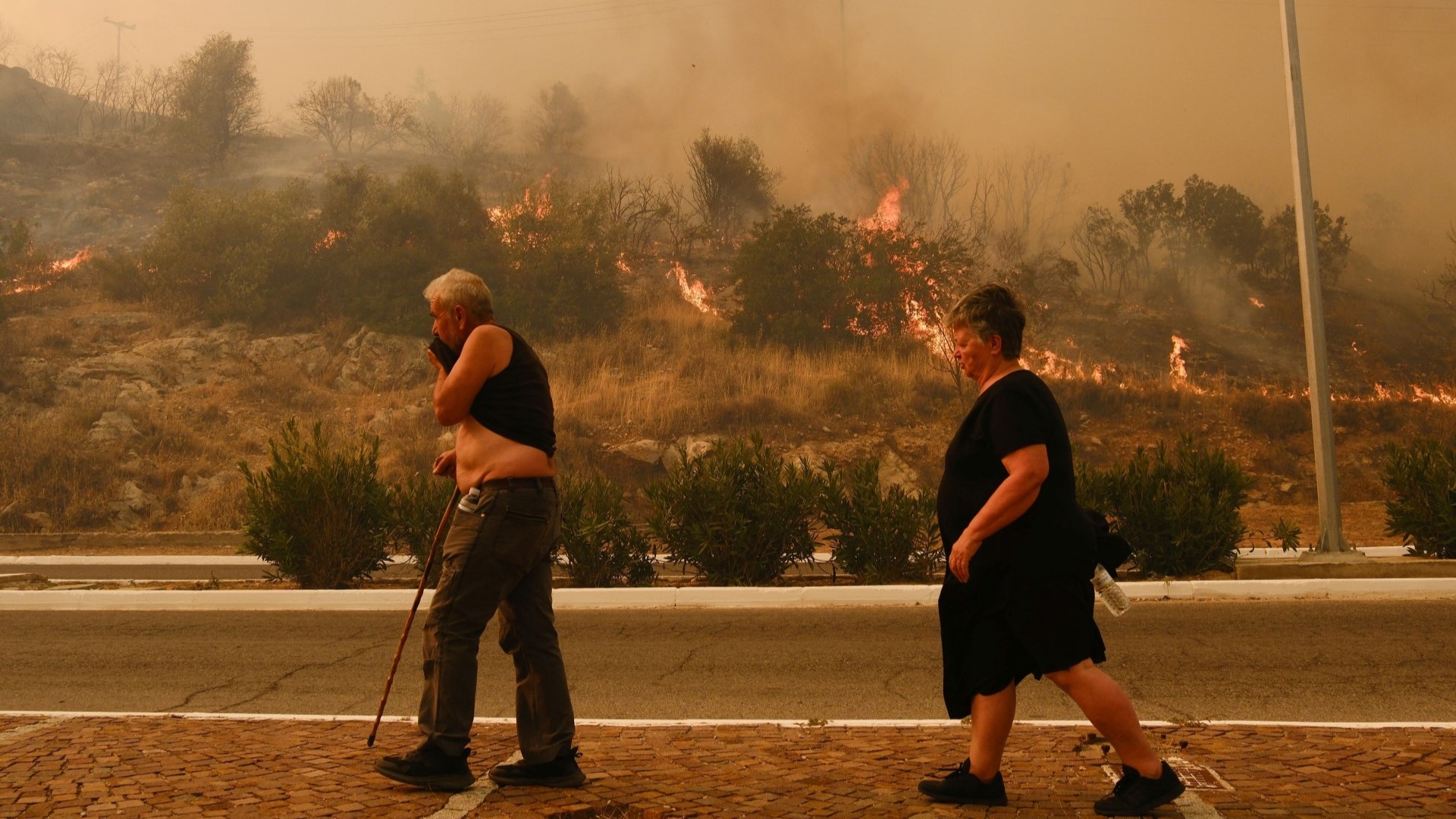
Rumors spreading like wildfire
When it comes to raising public awareness around wildfires, misinformation is an obstacle. A common belief among some communities in Greece is that wildfires are intentionally caused in order to clear space for wind farms. WWF’s Tziritis downplays this as a conspiracy theory, although it raises some questions around the action of energy companies.
“I think that’s one of the urban myths that exist in the country. So, the connection between wind turbines and burnt land cannot be made because when someone wants to burn an area to change land use, it usually deals with illegal land use. There are cases where this is done. We are not saying that it cannot be done.”
When it comes to raising public awareness around wildfires, misinformation is an obstacle.
Lawyer and retired associate professor at Harokopio University, George Balias, has another view. He believes that the law permitting exploitation of burnt land without letting a forest recover favors wind energy companies. For instance, about 3 weeks after the megafire in Evros was extinguished, licencing was given for a wind park to be established into the Natura protected area. In the same period, the company ENEL Green Power Hellas requested a license for a wind farm only 1.5 km away from the Dadia National Park. The authorization file did not include the Special Ecological Assessment, which should have been obligatory.
Tziritis, on the other hand, says burnt land does not facilitate wind turbine installation. “When forests burn, they don’t disappear. Logs stay there. There are burnt trees. Also, whoever starts a fire doesn’t know if it’s going to burn at low intensity or high intensity. So it doesn’t make one’s job any easier.” He adds: “The other issue is, how do you explain when forest fires occur in areas where there are already wind farms?”
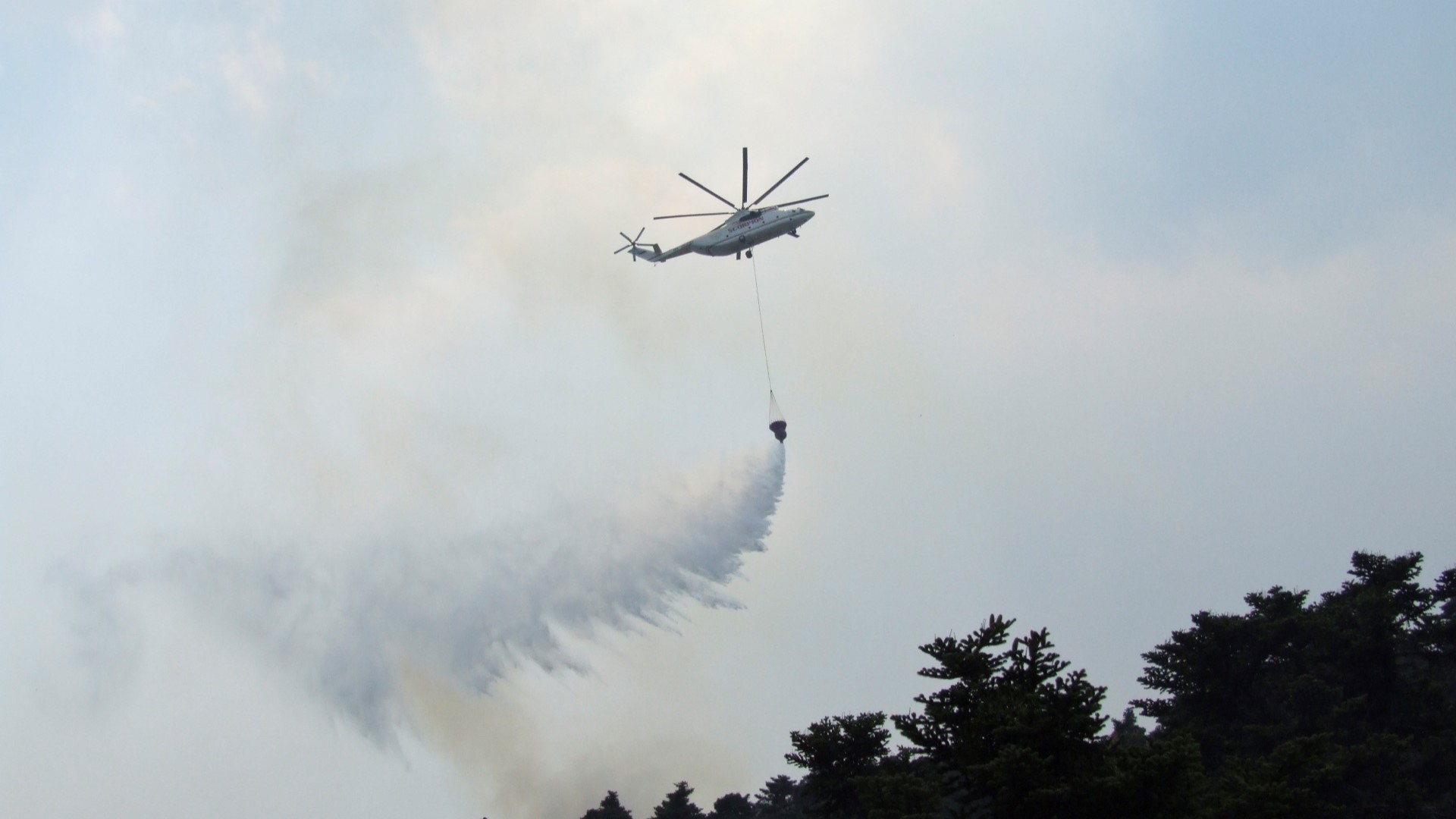
Often, by the time the real cause of a wildfire becomes apparent, it is too late. Tziritis provides an example of a case where a wildfire that took hold in Styra, August 2023, was wrongly attributed to wind farm companies. “Everyone on social media was saying the fire started by those who install wind turbines. Two days later, a farmer confessed that he started the fire and was arrested. While he was doing some work in his field, the exhaust of the tractor gave off sparks, due to poor maintenance. However, the fire-event theory had spread everywhere. The real cause was not given a chance to be heard.”
Nevertheless, the WWF expert mentions a plausible connection between wind farms and wildfires. “The correlation that may exist is the densification of the energy distribution network. Some fires are caused by the power grid. Therefore, this might be the explanation of why there are more frequent fires near wind farms than in the past.”
The need for effective policy
According to WWF Greece, there is neither a systematic documentation of forest fire behavior nor an official record of forest fires. This results in a lack of safe and systematic fire prevention strategy. Tziritis highlights, “We need to look at the driving forces in order to offer concrete solutions.” The organization’s research revealed also the need for scientific support for data analysis in real time that enables urgent decision-making.
Another recommendation is fire management planning at the municipal level, which is more effective and therefore crucial. The evaluation of fire risks at this level can be more accurate, it enables high spatial analysis of a local area, and the design of wildfire prevention plans can be targeted for better risk management.
In more positive news, Greece aims to invest €2.1 billion to protect the nation from natural disasters caused by climate change. Funding is planned for fire control centers, fire detection and extinguishing systems, and over 1,000 firefighting vehicles. Already, the number of trained drone operators has increased from 104 to 139. Tziritis says, “Fires are a multifactorial problem. There are so many factors that contribute to having a forest fire or having a disaster. […] We have to look at the whole picture. How should the drone be combined with a firefighter? How will the quantitative increase in personnel be combined with qualitative training?”
Additionally, penalties for arson and ecological destruction have become more stringent, with fines reaching up to €200,000 and prison sentences of up to 20 years for arsonists.
According to the WWF expert, “Training and education will essentially break down the myths as well. And we will really see what happens and what the behavior of fires is and how they are treated.”
